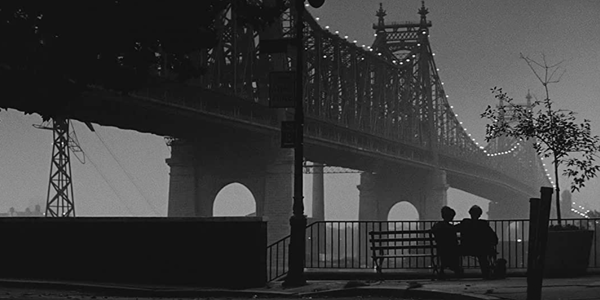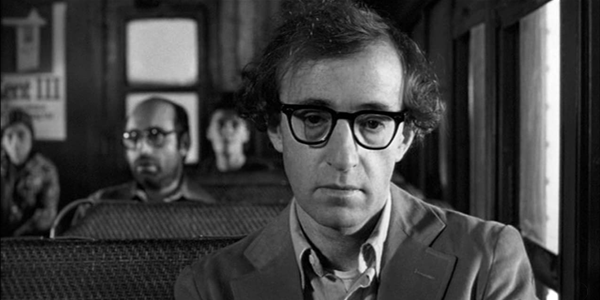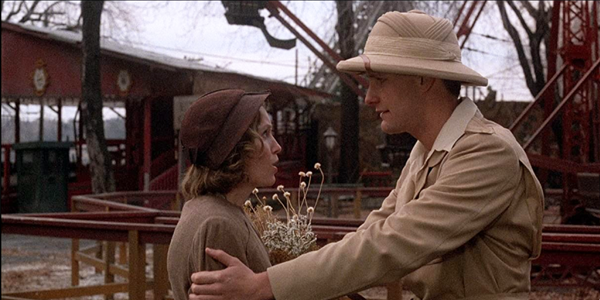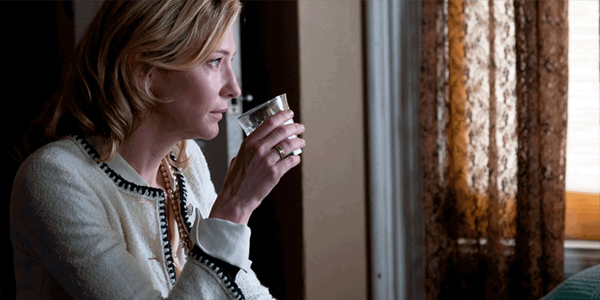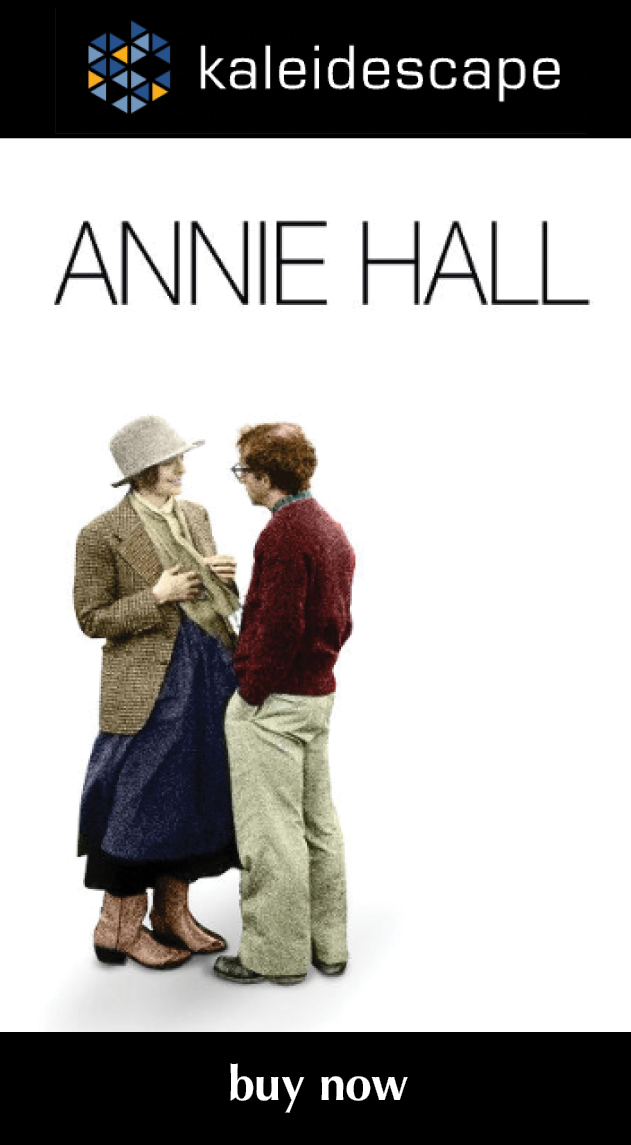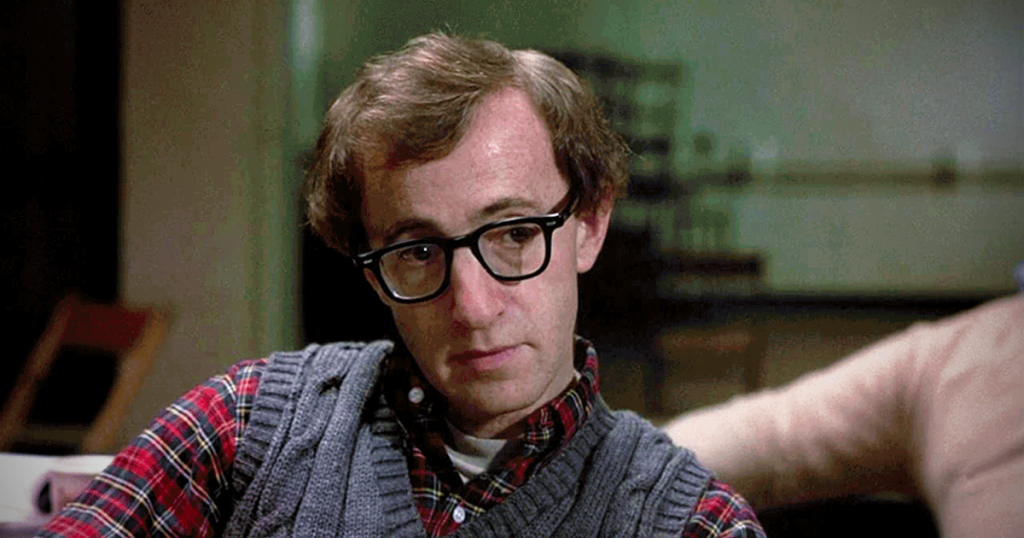
review | Annie Hall
Woody Allen’s first truly great film is less a romantic comedy than an incisive and beguiling cultural document of New York in the mid ’70s
by Michael Gaughn
January 5, 2021
It’s impossible to talk about a Woody Allen movie without having to first weigh in on the ongoing efforts to vilify Allen and obliterate all traces of his career. He’s been spattered with so much bile by Hollywood types like Greta Gerwig and Ellen Page who’ve blindly bought into the Me Too herd mentality that there are fewer and fewer people even willing to approach his films let alone consider them objectively.
I’m hoping to do an appreciation of his career where I can go into all this a little more. What I would ask for the moment is that you try to ignore the grating cacophony of squeaky wheels and appreciate the works of one of the most accomplished filmmakers of the ‘70s and ‘80s for what they are.
Annie Hall is known as a romantic comedy—a perception that had a lot to do with it snagging a Best Picture Oscar. The thing is, it’s not really a romantic comedy—at least not for me.
That I’ve never found Diane Keaton to be very attractive, or a very good actress, has helped me develop a different—and I think more accurate—take on the film. Annie Hall is actually a very ambitious, incisive, and candid attempt to capture the essence of a particular culture at a particular moment in time via its embodiment in a particular personality—and that personality is not Keaton.
There had to be a reason why Allen suddenly shifted away from all of those gag-driven early movies that served as his film school and allowed him to build the fan base he was able to ride for the next four decades. And there has to be a reason why he suddenly went from being a good-enough comedy director to a fully fledged and inspired filmmaker.
And I think the answer lies in this exchange from the film:
“The failure of the country to get behind New York City is anti-Semitism.”
“But, Max, the city is terribly run.”
“But we’re not discussing politics or economics. This is foreskin. . . . Don’t you see? The rest of the country looks at New York like we’re Left-Wing Communist, Jewish, homosexual pornographers. I think of us that way sometimes, and I live here.”
New York City had pretty much imploded in the wake of the social upheaval of the ‘60s and was in a wretched state by the mid ‘70s. Very much like the way it’s portrayed in Scorsese’s Taxi Driver, it had become a kind of repository for all of the country’s sins. This was probably the city’s darkest period, years before the unfettered avarice of the ‘80s turned Manhattan into a playground for billionaires and Brooklyn into a day-care center for their kids.
Allen’s identification with the city was so strong that this all had to have sent him reeling. Knowing that it was the prime source of his inspiration—and of his creativity in general—he needed to work out what it meant to be a popular entertainer trying to create within a metropolis that the rest of the country was treating like it had the plague.
That’s what Annie Hall is really about—Diane Keaton was just his Trojan Horse, a way to open some doors and to make sure the studio got its money back.
The movie comes very close to being a drama. Just slightly shift the emphasis of almost every one of the scenes and it becomes a sobering look at people desperately trying to define themselves at a time when there were very few reliable guideposts to lean on. Had Allen approached the film that way—although he wasn’t yet that good of a filmmaker—Annie Hall would have been wrenching instead of hilarious.
Consider how Allen treats his own character—which is the same as saying, how he treats himself. This is not a very flattering portrayal—miles away from the narcissism he’s too often accused of. Alvy Singer displays a lot of bluster, and uses his jokes as his armor, but you can tell the guy is hopelessly lost—which Allen expresses through the movie’s loose, improvisational structure, trying on different styles and techniques and attitudes to see what will stick.
But that shouldn’t be mistaken as Allen himself flailing from behind the camera. Just consider the famous scene of him and Keaton on line at The New Yorker, where Allen humiliates the pontificator by dragging a seemingly embalmed Marshall McLuhan into the shot. It’s a nuanced and logistically complex near-3-minute single-take piece of bravura comedy filmmaking that only a self-assured and truly inspired director could have pulled off. And that’s just one example among many.
True, this isn’t the film Allen set out to make, and a lot of Annie Hall did come together in the editing room. But the list of genius directors who’ve confided that the real filmmaking happens in the editing is long. And they’re not wrong.
Allen started out with a film that was true to his intentions but was all cake and no icing, and he sweetened it just enough to make it palatable for his audience, which was expecting another Sleeper. In the end, he found himself named King of the Romantic Comedy with a couple of Oscars left at his door—an experience he likely wasn’t expecting and that probably scared the bejeezus out of him.
Annie Hall was Allen’s Rhapsody in Blue—a loosely structured, jazz-inflected work that announced that he had ambitions that went beyond being a successful pop performer. And, as with Gershwin, he was never able to do anything quite that fluid and intuitive again, instead trying on different genres defined by others with decidedly mixed results.
But Hall holds up. A surprising number of the jokes and gags still land, his approach to the material and the scenes remains fertile unexplored territory for other filmmakers, and the way he took the careening wreck of New York City and turned it into the most vital and romantic place on Earth is still seductive. The City owes him a statue—but then some group of Yahoos would come along and demand that it be taken down.
Talking about seeing the film in HD is difficult. Gordon Willis’s cinematography is known for being dark and bold, but it’s very subtle, almost documentary-like here. In HD, it feels flatter than it should—not unwatchable, just flat. And then there’s the weird dilemma of having to separate the shots where he deliberately and beautifully exploited grain—like the famous shot of Annie and Alvy standing on a pier at twilight with the East River bridges arrayed behind them—from the ones that are overrun with grain because the elements for the transfer probably weren’t the best.
As for the sound—come on, this is a Woody Allen movie. One of Allen’s greatest strengths as a filmmaker is the ability to make his material compelling without relying on CGI, flashy editing, explosions, or other gratuitous effects. This is moviemaking stripped down to its essence, and it can be cleansing to luxuriate in a piece of cinema that doesn’t pivot on its ability to mercilessly abuse you.
Forget that this is supposed to be a romantic comedy. Forget about its Oscars. Forget about the well-heeled mob of Hollywood conformists bleating for Allen’s blood. Approach Annie Hall as an adventurous and innovative and unusually honest piece of filmmaking and you’ll get the chance to experience—or re-experience—one of the best American films of the final quarter of the last century, the movie that helped start the wave that brought New York back from the dead, for better or worse.
Michael Gaughn—The Absolute Sound, The Perfect Vision, Wideband, Stereo Review, Sound & Vision, The Rayva Roundtable, marketing, product design, some theater designs, a couple TV shows, some commercials, and now this.
© 2025 Cineluxe LLC


